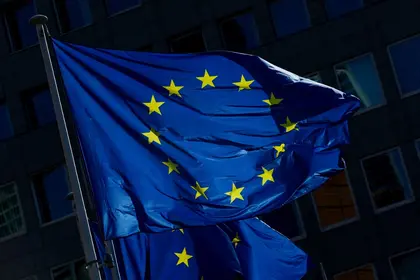Yet some claim that Europe “is divided,” because European countries have differing opinions on energy security matters and different national security priorities. They believe that these conflicting priorities, allied to a growing political divide, will result in further divisions between Western and Eastern Europe that will worsen over time.
The facts say otherwise. For the first time since the Second World War, unity across the European continent is strong. Countries across Europe have developed new strategies to improve their national security and energy security matters. These countries have also amended their definition of what it means to be European.
JOIN US ON TELEGRAM
Follow our coverage of the war on the @Kyivpost_official.
“There is an increase[d] support for the idea of being less dependent and having more influence on energy production capacity, defense and security, and economy and innovation,” said European Council President Charles Michel in a recent interview.
What has the European collective done to promote this unity across the continent? How is Europe improving its national and energy security?
First, national security. When the Russian invasion of Ukraine began, numerous European countries reevaluated their national security and defense strategies. For example, before the war, Finland and Sweden were not part of NATO. For decades, they maintained their neutrality, but the Russian military incursion into Ukraine has forced these two Scandinavian countries to reconsider their policies. They applied to join the Alliance in May 2022, and they have increased their defense spending. Finland was recently admitted into the Alliance and Sweden is expected to become the next member. These events suggest that European countries believe that NATO membership will help them to preserve their sovereignty and it will help these countries strengthen their borders.

‘Europe Must Stand Up’ – EU Lawmakers Clash Over Trump’s Return, Musk’s Political Meddling
Other countries, such as Ireland and Cyprus, have expanded their interactions with NATO. For example, Ireland is exploring methods to cooperate with NATO on cyber security matters. Meanwhile, Cyprus hopes to participate in efforts that would “enhance European defense.” Even famously-neutral Switzerland is pursuing options on how it can establish “closer defense and security ties to the European Union and NATO.” While these countries do not necessarily want to join NATO, these interactions suggest that neutral countries on the continent are willing to cooperate with one another to ensure peace and prosperity across Europe.
Aside from its national security, Europe as a whole has enhanced its energy security. One of Europe’s worst-kept secrets before the Russian war was that it was heavily dependent on Russian gas. In 2021, Europe was importing 45% of its natural gas from Russia. As a result, the continent was at the mercy of the Russian gas industry and Europe had little control over its energy market.
Russia’s war has now forced Europe to diversify its energy market. Europe significantly cut its natural gas imports from Russia in 2022 and the European Union recently announced that it will “prohibit imports of Russian gasoline, diesel, and other products.” The continent has begun purchasing gas from other suppliers across the globe. This has led to the expansion of Europe’s natural gas market, where Europe is no longer dependent on one national supplier. The Europeans are also exploring renewable and clean energy options. This would create new job opportunities and lead to economic growth across the continent. In addition, this diversification has helped the Europeans become more independent in the energy environment.
Finally, from an institutional approach, the European Union is expanding its definition of what it means to be European. For several decades, “Europe was often synonymous with the EU.” The EU only consisted of countries from Western and Central Europe. Citizens in these countries spoke Romance or Germanic languages and they were either Catholics or Protestants. Those who did not fit these linguistic or religious models were deemed to be “foreign.”
Now, the definition of Europe has expanded. To date, there are seven European countries that hold EU candidate status (Georgia could become the eighth). Of these seven, North Macedonia, Montenegro, Moldova, Serbia, and Ukraine are Orthodox Christian countries. Citizens in Albania and Turkey are predominantly Muslim. Moreover, the residents of North Macedonia, Montenegro, Serbia and Ukraine speak Slavic languages. Despite their differences, these ethnic, religious, and linguistic groups are moving together to incorporate more Western-leaning traditions and values. While it will take time, this Western integration will lead to greater peace and prosperity across the continent.
In short, Europe is changing. Yes, there are differing traditions, values and political beliefs across Europe. There are a wide range of opinions across the European continent and there are disagreements on a variety of topics. But it is important to examine how Europe has become redefined over the past year. Citizens of various ethnicities, religious backgrounds and political beliefs are uniting to create a safer, more secure and independent European continent.
It is not perfect, but these developments suggest that countries across the continent are willing to set aside their differences for a better future. Europe is redefining itself, and it is more united than ever before.
The views expressed in this opinion article are the author’s and not necessarily those of Kyiv Post.
Mark Temnycky is an accredited freelance journalist covering Eastern Europe and a nonresident fellow at the Atlantic Council’s Eurasia Center. He can be found on Twitter @MTemnycky
You can also highlight the text and press Ctrl + Enter










